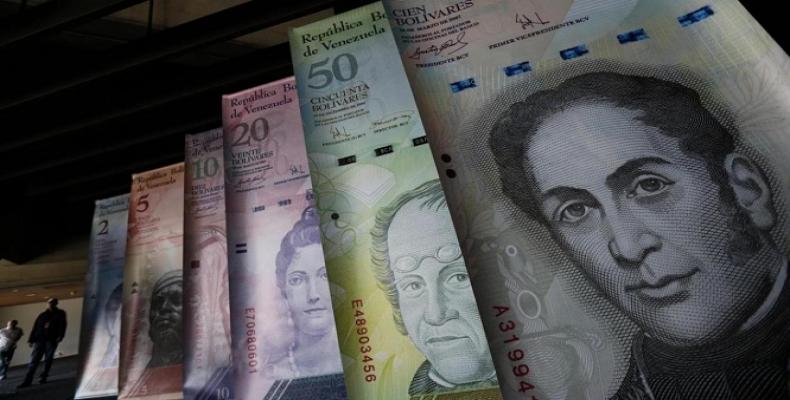Caracas, November 4 (RHC)-- The Venezuelan government will refinance and restructure the country's foreign debt in order to overcome the "blockade and foreign persecution," and to continue its social programs, said Venezuelan President Nicolas Maduro.
Maduro appointed Venezuela's Executive Vice President Tareck El Aissami to lead the presidential commission responsible for the restructuring, which will begin with a restructuring of the state oil company, Petroleos de Venezuela (PDVSA), the main source of income for the Venezuelan government.
“We’re going to begin a complete reformatting. To find an equilibrium, and to cover the necessities of the country, the investments of the country,” Maduro said. "We have to pay the amount of $1.121 billion dollars from the PDVSA 2017 bonus and we have the money to fulfill this obligation," the head of state announced, adding that the government also has resources to continue providing necessities to Venezuelans.
"We have the money for this payment, and we also have the money for raw materials, medicines and food," he said from Paseo Los Proceres in Caracas. Maduro also noted financial aggression, in the form of sanctions, coming mainly from the United States, which is exacerbating the financial situation in Venezuela.
Despite the Venezuelan government having made large payments over the past 4 years, the country still has a high risk percentage, which analysts suggest is a result of sanctions against the Bolivarian nation.
Venezuela’s financial risk will lead to difficulties in restructuring debt, analysts say. Given the need for restructuring, Aissami will convene bank representatives, state bondholders, representatives from PDVSA and external loan providers to find a solution to the country’s debt restructuring.
Maduro and Aissami plan to restructure the government’s debt to allow for social services to continue as normal. Aissami pointed out that Euroclear, one of the world's largest security transaction firms, blocked the Venezuelan government from paying "an order of 1.2 billion dollars in bonds," without providing further details.
The Venezuelan government and PDVSA do not face new capital payments for the remainder of the fiscal year, but they are scheduled to pay around $800 million in interest for their security bonds, which are due for payment in November and December. If the government does not reach a solution, it could lead to a default which could cause sweeping problems in the Bolivarian nation.
Some analysts warn that U.S. investors could seize on the opportunity to try to gain legal control over Venezuela’s vast oil reserves, the largest in the world. Venezuela’s chief negotiator, Aissami, is sanctioned by the U.S. government and unable to do business in the U.S. over alleged drug trafficking charges, which Aissami denies emphatically.
“Today, if Venezuela wants to go out to the world to refinance one of these bonds we have to pay, it can’t. It’s prohibited by the global financial dictatorship of the U.S. empire,” Maduro said.
PDVSA said in a statement that the company would make good on its payments "despite the economic war, unjustified imposition of sanctions by Donald Trump, and the sabotage, persecution and financial blockade to which the Republic and its institutions have been subjected by a significant portion of the international financial system as commanded by imperialism."
Venezuela Ratifies Plan to Refinance and Restructure Debt

Related Articles
Commentaries
MAKE A COMMENT
All fields requiredMore Views
- U.S. lawmakers propose withdrawing from United Nations, saying it no longer serves Washington's interests
- Brazil announces dates for BRICS summit
- Cuban president congratulates new head of African Union Commission
- Indigenous leader and political prisoner Leonard Peltier released after nearly 50 years in prison
- Rubio is from the USA, not Cuba

